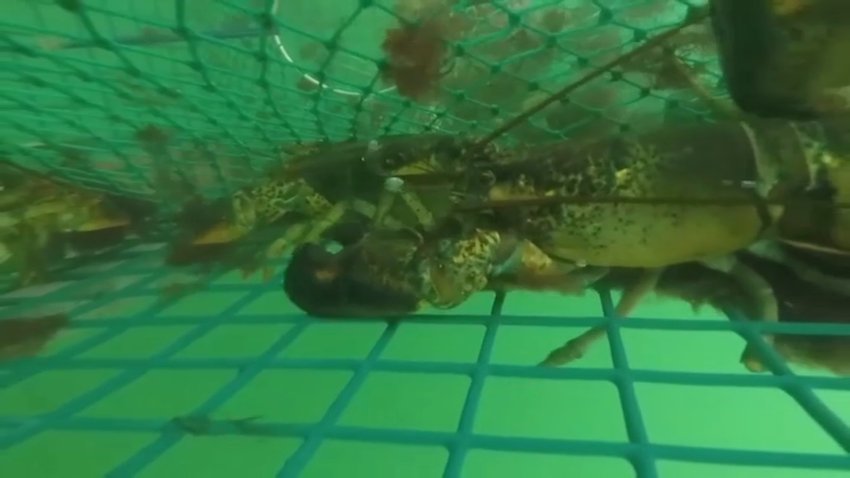-

US states race to attract smaller, cheaper nuclear reactors for AI development
U.S. states are positioning themselves to compete for newer, cheaper nuclear reactors being developed as communities and tech giants compete in a race for electricity.
-

Scientists warn of severe honey bee losses in 2025
Researchers at Washington State University projected that honey bee colonies in the U.S. could decline by up to 70% this year. Honey bee colonies in the U.S. are projected to decline by up to 70% in 2025, entomologists at Washington State University said on Tuesday. The university said in a press release that in the past decade, honey bee colony losses have...
-

Up-close look at rapidly melting glaciers from Alaska to Antarctica
Climate scientists and policymakers are gathering at the United Nations headquarters in New York for the inaugural World Day for Glaciers. The gathering aims to build global cooperation to slow climate change. National climate reporter Chase Cain takes us to some of our planet’s fastest melting glaciers.
-

Last decade was Earth's hottest ever as CO2 levels reach an 800,000-year high, UN report says
Last year was the hottest year on record, the top 10 hottest years were all in the past decade, a report Wednesday said.
-

India has six of the world's 10 most polluted cities, report shows
Chad in central Africa is the world’s most polluted country, while California has the worst air pollution in North America, according to an IQAir report.
-

Less friendly skies: How is climate change causing more turbulence on flights?
There has been a 55% increase in cases of moderate, severe or extreme turbulence, compared to 45 years ago.
-

California fire victims are in limbo as they wait for insurance payouts
The Eaton and Palisades fires displaced about 150,000 residents, and many remain in rentals and hotel rooms nearly two months later.
-

US lobster catch drops as crustaceans migrate to colder Canadian waters
The U.S. lobster industry’s catch keeps sliding as fishermen contend with the northward migration of the valuable crustaceans.
-

New stove that plugs into a normal wall outlet could be major gain for health and the climate
For 47 million American households, cooking means a gas stove. Gas stoves generate gases that aren’t good for people’s health and the gas itself contributes to climate change. But switching to electric cooking usually requires a licensed electrician to pull in 240-volt wiring, which can make switching from gas to electric expensive. Now a new stove built by a startup...
-

New England ocean warming slows but temperatures remain high
The waters off New England had another warm year but didn’t heat up as fast as earlier this decade, bucking a trend of higher warming worldwide, said scientists who study the Atlantic Ocean near Maine.
-

Boston leaders address climate resilience amid federal funding concerns
Mayor Michelle Wu says Boston has moved quickly to make sure current federal funding that helps keep the city prepared for weather emergencies is secure after President Donald Trump took office
-

Mayor Wu addresses Boston's emergency weather preparedness
With the weather becoming more unpredictable in recent years, Boston want to make sure it is prepared for whatever might come, Mayor Michelle Wu says.
-

A global coffee price spike is about to drip into your mug
Climate impacts can increase the prevalence of diseases in coffee crops, reducing overall yields for farmers. Studies have shown that the arabica bean is particularly vulnerable to climate change.
-

Climate change is turning Valentine's Day bitter for chocolate lovers
The price of raw cocoa, chocolate’s key ingredient, has surged by 200% over the past year, a hike fueled by climate change.
-

Trump's executive orders might threaten growth of electric vehicles and wind power
With two executive orders, President Donald Trump changed the trajectory of two of the fastest-growing climate-friendly technologies in the U.S.: electric vehicles and wind power.
-

Last month set record for world's hottest January, EU scientists say
Copernicus says the world warmed to yet another monthly heat record in January, despite an abnormally chilly U.S. and predictions of a slightly less hot year.
-

A luxury house is close to tumbling into Cape Cod Bay. Will anyone stop it?
The waters of Cape Cod Bay are coming for the big brown house perched on the edge of a sandy bluff high above the beach. It’s just a matter of when. Erosion has marched right up to the concrete footings of the multimillion-dollar home where it overlooks the bay. Massive sliding doors that used to open onto a wide...
-

Could climate change be making Boston's rat problem worse?
A recent study linked warming temperatures from climate change to increases in rat populations in major cities.
Follow NBC10 Boston:
https://instagram.com/nbc10boston
https://tiktok.com/@nbc10boston
https://facebook.com/NBC10Boston
https://twitter.com/NBC10Boston
https://bsky.app/profile/nbcboston.com -

Saving salmon can be a win-win for climate change
A team of Canadian scientists at CarbonRun discovered two environmental wins with one stone — limestone. Accelerating a natural process through “enhanced rock weathering” helps restore river ecosystems while also offsetting pollution from oil and gas. Climate reporter Chase Cain traveled to Nova Scotia to see how the first-of-its-kind process works.
-

Why did the ‘Doomsday Clock' just move closer to midnight?
The advocacy group Bulletin of the Atomic Scientists makes an annual announcement that rates how close humanity is to collapse.

